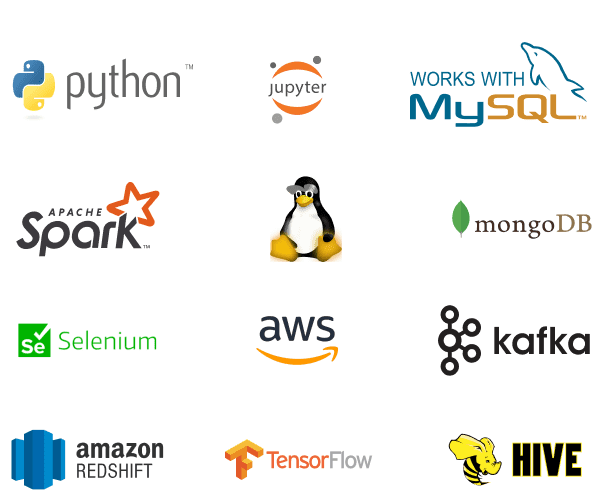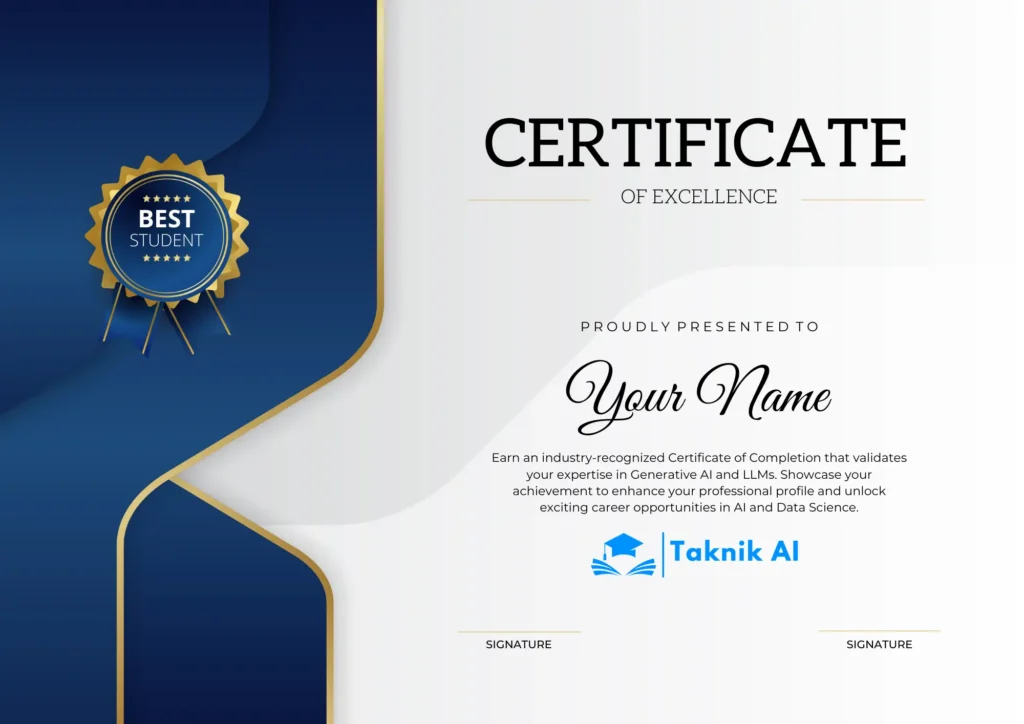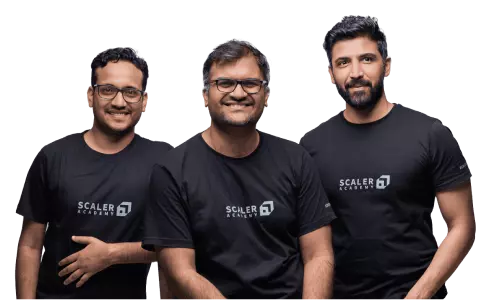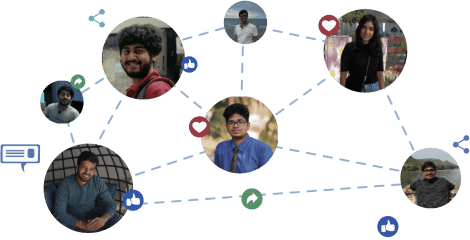Find our Alumnis at –




Monthly sessions tailored to your progress.
Taught by researchers & engineers from IITs and leading companies
Build a strong, clean GitHub portfolio
Resume, LinkedIn, interview prep
Python, SQL, ML, DL, Transformers, LLMs, RAG, AI Agents
Learn with a network of peers & alumni
Get a personalised career roadmap + free access to Taknik AI events.

Build & deploy an LLM-powered chatbot for a real use-case.
Create a tool that compresses large documents into concise summaries.
Analyse social media sentiment for brands or products.
Create a model that generates descriptive captions for images using a combination of vision and language models.
Build a recommendation engine using customer interaction data (e.g., movie, shopping, or content platforms).
Develop an AI tool that generates tailored resumes based on user-provided job descriptions and personal details.
Implement a system that converts text inputs into natural-sounding speech for various languages.
Use Generative Adversarial Networks (GANs) to create digital art or simulate real-world scenarios for training.
1:1 Mentorship From Industry Experts

AI Product Manager, worked on GenAI features

AI Researcher (ex-Google)


LLM Specialist

AI Solutions Architect
We help you prepare, not promise unrealistic outcomes.
You’ll get

Companies wish to hire data scientists and ML engineers who are not just certified and skilled but also have a deep understanding of business. We help you achieve the best skillset and help you get job opportunities from top companies.
Learn 45+ Data Science tools, including Git, TensorFlow, PySpark, PyTorch, and Kafka.

“Hands-on LLM projects gave me a competitive edge.”

“The mentorship and preparation made the transition possible.”

“Real-world projects helped me build a strong portfolio.”
Conditional statements, loops, and functions.
Working with lists, tuples, and dictionaries.
Introduction to libraries (NumPy and Pandas).
Introduction to Matplotlib: plotting basics.
Customizing visualizations (legends, annotations, colors).
Using Seaborn for advanced plots (heatmaps, pair plots).
Combining multiple visualization techniques.
Handling datasets: loading, cleaning, and transforming data.
Basic statistics and data exploration techniques.
Introduction to Pandas for data manipulation.
Advanced Pandas operations.
Working with real-world datasets (e.g., CSV, JSON).
Data cleaning and preprocessing (handling missing data).
Project kickoff: Exploratory Data Analysis (EDA) on a real-world dataset.
Project work session with guidance.
Introduction to Machine Learning: concepts and types.
Linear regression: model building and evaluation.
Logistic regression for classification problems.
Hands-on practice: building regression models.
Introduction to clustering algorithms (K-Means).
Dimensionality reduction using PCA.
Practical applications of clustering (customer segmentation).
Hands-on clustering with real-world data.
Decision trees and their applications.
Random forests: improving decision trees.
Hyperparameter tuning for supervised models.
Hands-on practice with tree-based algorithms.
Evaluation metrics: precision, recall, F1-score, and ROC-AUC.
Train-test split and cross-validation.
Feature scaling and encoding techniques.
Hands-on session: end-to-end ML pipeline.
Overview of Generative AI concepts and applications.
Introduction to GANs (Generative Adversarial Networks).
Hands-on with simple generative models.
Ethical considerations in Generative AI.
Chatbots using LLMs.
Text summarization and sentiment analysis.
Image-to-text generation.
Live coding session: deploying a chatbot.
Fine-tuning LLMs for specific tasks.
Pre-trained models: GPT, BERT, and others.
Fine-tuning LLMs for specific tasks.
Building simple applications with pre-trained LLMs.
Project kick off: Building a chatbot using GPT models.
Project work session.
Debugging and optimizing your project.
Final project presentation.
SESSION 1:
Python basics: variables, data types, operators.
SESSION 2:
Conditional statements, loops, and functions.
SESSION 3:
Working with lists, tuples, and dictionaries.
SESSION 4:
Introduction to libraries (NumPy and Pandas).
SESSION 5:
Handling datasets: loading, cleaning, and transforming data.
SESSION 6:
Basic statistics and data exploration techniques.
SESSION 7:
Introduction to Pandas for data manipulation.
SESSION 8:
Advanced Pandas operations.
SESSION 9:
Introduction to Matplotlib: plotting basics.
SESSION 10:
Customizing visualizations (legends, annotations, colors).
SESSION 11:
Using Seaborn for advanced plots (heatmaps, pair plots).
SESSION 12:
Combining multiple visualization techniques.
SESSION 13:
Working with real-world datasets (e.g., CSV, JSON).
SESSION 14:
Data cleaning and preprocessing (handling missing data).
SESSION 15:
Project kickoff: Exploratory Data Analysis (EDA) on a real-world dataset.
SESSION 16:
Project work session with guidance.
Perform EDA on a dataset (e.g., COVID-19 trends or e-commerce sales data).
SESSION 17:
Introduction to Machine Learning: concepts and types.
SESSION 18:
Linear regression: model building and evaluation.
SESSION 19:
Logistic regression for classification problems.
SESSION 20:
Hands-on practice: building regression models.
SESSION 21:
Decision trees and their applications.
SESSION 22:
Random forests: improving decision trees.
SESSION 23:
Hyperparameter tuning for supervised models.
SESSION 24:
Hands-on practice with tree-based algorithms.
SESSION 25:
Introduction to clustering algorithms (K-Means).
SESSION 26:
Dimensionality reduction using PCA.
SESSION 27:
Practical applications of clustering (customer segmentation).
SESSION 28:
Hands-on clustering with real-world data.
SESSION 29:
Evaluation metrics: precision, recall, F1-score, and ROC-AUC.
SESSION 30:
Train-test split and cross-validation.
SESSION 31:
Feature scaling and encoding techniques.
SESSION 32:
Hands-on session: end-to-end ML pipeline.
Build a supervised learning model to predict housing prices.
SESSION 33:
Overview of Generative AI concepts and applications.
SESSION 34:
Introduction to GANs (Generative Adversarial Networks).
SESSION 35:
Hands-on with simple generative models.
SESSION 36:
Ethical considerations in Generative AI.
SESSION 37:
Basics of LLMs and their architectures.
SESSION 38:
Pre-trained models: GPT, BERT, and others.
SESSION 39:
Fine-tuning LLMs for specific tasks.
SESSION 40:
Building simple applications with pre-trained LLMs.
SESSION 41:
Chatbots using LLMs.
SESSION 42:
Text summarization and sentiment analysis.
SESSION 43:
Image-to-text generation.
SESSION 44:
Live coding session: deploying a chatbot.
SESSION 45:
Project kickoff: Building a chatbot using GPT models.
SESSION 46:
Project work session.
SESSION 47:
Debugging and optimizing your project.
SESSION 48:
Final project presentation.
Build and deploy a chatbot using LLMs for customer service.
We only select 5% applications in our Cohorts
Learn 45+ Data Science tools, including Git, TensorFlow, PySpark, PyTorch, and Kafka.


Attend a free class and get a feel of how your life with Scaler look like, understand our teaching patterns
Your instructors are practitioners — researchers, engineers, and data scientists who work with machine learning and AI every day. They teach concepts with clarity and back them with real-world experience.








Access Data Science related job opportunities from 600+ partner employers and exchange job opportunities with a 20k+ strong student community that will make you say Scaler Forever!


Courses like DSA and DSML with Scaler stood out to me because they’d provide you with every resource possible to enhance your…

Courses like DSA and DSML with Scaler stood out to me because they’d provide you with every resource possible to enhance your…
Yes — structured by IIT alumni & industry practitioners.
Yes — an industry-recognised certificate from Taknik AI.
4 months, weekends only.
Live classes + recordings available.
You receive structured placement support (no fake guarantees).
Courses like DSA and DSML stood out because they’d provide you with every resource possible to enhance your…
Taknik’s Data Science and Machine Learning program is considered one of the best data science courses because-
Yes, you have the flexibility to attend Data Science online course on a part-time basis. In case you miss a live class, you can always access the recorded sessions. You can also take a break of up to 3 months, all this within the course duration.
While designing the Data Science course, we did not put any limit on the duration. We included each and every concept that is important for making you a strong Data Scientist and ML Engineer. The course turned out to be 15 months long with more hands-on experience.
Live classes are held 4 times a week, primarily in the late evening or night on weekdays to accommodate working software engineers. Weekend timings are flexible.
We included each and every concept that is important for making you a strong Data Scientist and ML Engineer. The course turned out to be 3 months long with more hands-on experience.
Notice that the course is quite rigorous; each week you will have 4 Live lectures of 1.5 hours each, homework assignments, business case project, and discussion sessions. This allows us to cover the entire depth and breadth of Data Science & Machine Learning, as much as is required for you to succeed in the role.
Yes, there is an eligibility interview called the Taknik Screening Call for enrolling in Data Science program.
In Data Science certification course, you’ll acquire a wide range of skills, including:
Data Science and Machine learning program is open to both freshers and working professionals who are comfortable and confident with 10 standard aptitudes and mathematics.
A coding background is not required to enroll in this Data Science training. You can start from the Beginner module in which we will cover the basics of coding.
In fact, prior knowledge in Data Science or ML is also not needed. We will cover all the relevant topics from scratch.
The only prerequisite is that you should have a basic understanding of 9th and 10th-grade school maths – just the basics, nothing advanced. Still, we will cover these topics in class, but some prior knowledge would be helpful.
Data science is a field of computer science that uses various algorithms, methods, and machine learning to uncover hidden and meaningful insights in both structured and unstructured data.
Data science can be challenging, as it requires a solid understanding of mathematics, statistics, and programming. However, with dedication and the right resources, it’s accessible to those willing to learn.
A data scientist is an expert in data science who specializes in collecting and analyzing large amounts of data from diverse sources. They use their skills in mathematics, statistics, and computer science to help organizations make informed decisions based on data analysis.
To become a Data Scientist, follow these steps:
A Data Scientist designs new data approaches, while a Data Analyst interprets existing data. Data Scientists create innovative ways to collect and analyze data, while Data Analysts extract insights from available data.
Yes, Data Science is an excellent career choice in 2025. The field is growing rapidly, with high demand for professionals due to its continued relevance and the increasing importance of data-driven decisions.
After completing the data science course, you can explore various job roles, including:
Top companies like Amazon, Google, IBM, Oracle, Deloitte, Facebook, Microsoft, Wipro, Accenture, Visa, Bank of America, and Fractal Analytics are actively hiring data scientists.
We are committed to supporting our students in their career journeys through extensive placement support and our network of 900+ partner companies. While we do not provide job guarantees, we offer valuable resources and training to improve job prospects.
Our students benefit from personalized career guidance, regular mentorship, interview preparation assistance, resume building support, and mock interviews conducted by industry experts. The active community, with over 40,000 members, provides networking opportunities and continuous support.
Notably, our DSML alumni have secured a median salary hike of 110% and medium CTC of INR 18 lakhs per annum.
Take a look at the Scaler Career Assessment Report audited by B2K Analytics for more insights.
To earn Data Science certification, you need to successfully complete all the required course modules, assignments, and projects. You’ll be assessed based on your performance throughout the program.
Taknik’s Data Science certification is a lifetime certification, meaning it doesn’t expire. Once you earn it, you can proudly showcase your expertise in data science throughout your career.
We are providing certificates to all the learners after the end of the program
Taknik’s Data Science certification is highly regarded in the industry. It’s recognized for its comprehensive curriculum and hands-on approach, making you job-ready.
If you miss a lecture, you can still watch it offline, and it won’t affect your attendance.
Yes, you can access course materials and lectures for up to 6 months after completing the course.
If you find it challenging to balance your job or schedule with class timings, you can catch up by watching the recorded lectures, as classes are held four times a week
Our program is instructor-led, ensuring you have guidance and support throughout your learning journey.
All the Maths required for understanding and implementing algorithms will be covered in this Data Science training (Probability, Statistics, Linear Algebra, Calculus, Coordinate Geometry).
We offer multiple support channels for students, including WhatsApp groups for collaboration, dedicated problem-solving support on the dashboard, and Scaler support through chat and phone for any concerns or queries.
Yes, there is a community where students can interact and collaborate with each other.
Our community has people working worldwide. The bottleneck is in getting a visa sponsorship. Many companies based in India offer opportunities for their high-performing employees to work on international data science projects and relocate. Some international companies also hire directly in India and ask to relocate for jobs. However, with the surge in WFH, this trend may be ebbing. However, you can continue applying for remote data science jobs based outside India via LinkedIn.
For learners who show interest in publishing in the data science domain, we would be happy to provide mentorship and support.
Masters and Ph.D.s are typically asked for Research-focused data science roles. Most companies do not require a Master’s degree for a Data Science role.